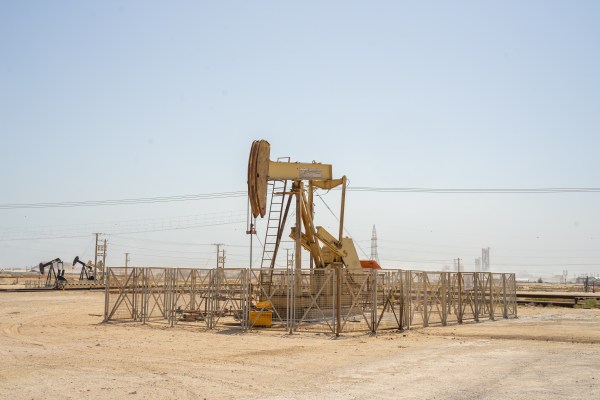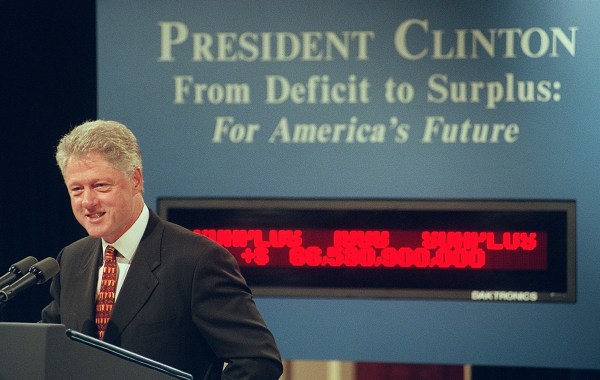Why do wages for some jobs go up while others go down? Why do some jobs pay a lot more than others?
The barstool answers you get to those questions tend to emphasize factors such as how difficult, dangerous, or important a job is, how much education is necessary, etc. You tend to get moralistic answers in a lot of cases, answers that attempt to explain why highly paid people deserve to be highly paid.
But none of those answers is true.
Anybody who thinks about it for 10 seconds knows that education, merit, social value, and other factors of that kind have nothing at all to do with earnings. There is no pediatric oncologist walking this earth who makes a dime on the dollar of Joe Rogan’s income, or Taylor Swift’s, or Jimmy Donaldson’s (that’s “MrBeast” to you). Kathy Ireland seems like a very nice lady, and I am sure she is smart and hardworking and jammed to the gills with personal merit of many kinds, but that isn’t why she’s rich—she made half a billion dollars with the job description “Stand there and look pretty.” Rogan and Swift and MrBeast are all bright and hardworking people, I’m sure, but none of them is as bright as the least bright associate professor of physics at MIT, and none of them works as hard as the people who pick tomatoes or throw baggage at the airport or unload cargo ships.
Wages are a price—the price of labor—and prices are determined by supply and demand. That’s it.
There’s enormous demand for the kind of thing Rogan and Swift and Donaldson and Ireland are good at, and there aren’t many people who can do what those people do. There are people who can be models and people who cannot—and it does not matter how hard you work, how badly you want it, how deserving you are as a person, what mentors you have, whether you have an advanced degree in fashion studies, or whether you are a nice person: If you don’t have the looks to be a top model, you aren’t going to be a top model. I have guest-hosted three-hour talk radio shows from time to time, and the number of people who are good enough at that kind of thing to do what Rogan does is small—while the audience is very large. Big ol’ demand plus itty-bitty supply equals high prices.
Pediatric oncologists make more money than top kindergarten teachers but less than top professional wrestlers not because of their education or hardworking ways or the transcendent moral value of what they do but because there is strong demand for their services and relatively few people who can provide that service. The guy working the register at TJ Maxx may be smart and hardworking—and if you’re in Austin or Ann Arbor or San Francisco, he may very well have a graduate degree—but he isn’t working there because he passed up a job as a pediatric oncologist. It isn’t as though stories that sound like something out of Good Will Hunting never happen, but they do not happen much.
Should doesn’t really enter into the question of what someone gets paid. If you are asking an economic question, you’re going to have to accept an economic answer.
And what the market supplies and demands isn’t always going to be stuff that all of us find admirable. Porn is a big business, and two of the big names in Republican politics from my generation—Rick Perry and John Boehner—are highbrow, arm’s-length drug dealers today, with Perry leading Americans for Ibogaine (which seeks to permit therapeutic use of the psychedelic drug) and Boehner was on the board of Acreage Holdings, a marijuana investment business, and specializes in cannabis-oriented businesses in his legal practice. I like Bill Maher and don’t think much of Joel Osteen, but they are two high-flying practitioners of the same trade, more or less: man on stage with microphone with a talent for provoking emotional reactions in crowds of believers who do not resent being manipulated but who enjoy it and pay good money for it. There’s good money in that. Taylor Swift or Christopher Parkening? Porn or Paganini? A new translation of The Iliad or Jackass XVII? People like what they like.
The question for policymakers isn’t why wages grow or shrink—the answer to that question is right there in basic economics and, as much as some people don’t like that answer, it isn’t going to change. The question for policymakers is: What can we do to nudge up wages for whichever class of people it is we’d like to see earning more?
The most ancient answer to that question goes back to the age of guilds and royal warrants and such, surviving into our current age of corporatism and crony capitalism: use the state to constrict the supply of those people. The only people who think you need 1,000 hours of training to cut hair safely are people who already are licensed cosmetologists. The Institute for Justice has spent years fighting requirements that people who braid hair receive up to 2,000 hours of mandatory training. (The scope and abuse of licensure laws is absurd.) You can use licensing or other regulations to make it prohibitively expensive for new competitors to enter the marketplace, or you can use tariffs to accomplish the same thing. And that puts upward pressure on prices, including the prices we call “wages.” That’s great for market incumbents, which tend to be older, successful, politically connected businesses that are less worried about having to spend a few extra bucks a year on compliance costs than they are about new and innovative firms coming on the scene and eating their lunch. It is bad for consumers, who pay higher prices and have fewer choices, and, in the long run, bad for workers as a whole, too, who end up with fewer new innovative firms bidding for their services.
The other thing you can do: Get a tractor.
My father picked cotton as a child in the 1940s. So did his parents. Before picking cotton was a job that a lot of poor white people did, it was a job that enslaved black people did, which is, to put it very mildly, one indication that it was not work held in high esteem or that was highly remunerated. My father (and his sister) picked cotton after school the old-fashioned way: with their hands and a bag. They were paid by weight and did not make very much money.
I still know some people in the Texas Panhandle who pick cotton. They use enormously complex and unbelievably expensive machines that look like something out of The Matrix, and one man or a two-man team can harvest enormous quantities of cotton—not bent over and sweating out in the field but sitting in an air-conditioned cab, possibly listening to Joe Rogan’s podcast. And they make a fair bit of money, six-figure incomes in which the first figure is not a “1.” You want to know who buys $100,000 pickup trucks out there in the vast Texas flatness among the tumbleweeds and haboobs? Those guys.
Technological innovation in the cotton industry did not end with Eli Whitney and the cotton gin in 1793. The market demands x amount of cotton harvesting—and if it takes 10,000 laborers to provide it, those laborers are each going to make a lot less money than one guy who can do it all himself. You’ll notice that the labor market is not crowded with the other 9,999 guys who really, really want to pick cotton by hand all day. Human effort is valuable, and a modern economy such as ours is characterized by institutions that are really, really good at connecting valuable workers with valuable work.
There is a profoundly stupid myth that Henry Ford bootstrapped his company into business by paying his factory workers enough to buy the cars he manufactured. The truth is that wages went up because Ford’s manufacturing techniques ensured that a single worker could create a lot more real economic value during his shift than he could have at a less advanced facility—and because Ford’s assembly-line standardization of job performance made working for him so monotonous and mind-numbing that he had a hard time keeping workers on the line, even at relatively high wages. There is a lot more demand for a worker who can produce $200 an hour in real value than for one who produces $20 an hour—even when it is the capital that has been improved rather than the labor per se.
Which is to say: Investment increases the value of labor. If you want the blue-collar guys to be making more money, you need the white-collar guys in the game.
Sure, German autoworkers at the Mercedes-Benz plant in Stuttgart are represented by a powerful and effective union, but it is possible for them to earn what they earn not because IG Metall is good at arm-twisting but because they work in a straight-from-The Jetsons high-tech factory full of crazy advanced robotics and the like. (I’ve been there—it is awesome.) The smart kind of union bosses (and the German industrial union leaders are pretty good as the species goes) press for precisely the kind of investment in labor force-multipliers that have, over the years, transformed cotton-picking from a job for oppressed slaves into a job for guys who may not be 1-percenters but who very well may be 5-percenters. An autoworker who can install two transmissions per shift is less valuable than one who can install 20.
The old rhetoric pitting “labor” versus “capital” is, and always has been, absurd. You can assemble a crew of 10,000 of the best-trained manufacturing workers in the world, but they won’t scratch much value out of the ground without a factory—or without tools and capital and the whole back end of finance and logistics that makes a modern factory, steel mill, or farm economically viable.
And, unlike artificially constricting the supply of workers, pumping up demand for their work by making that work more valuable in real economic terms leaves everybody better off: workers, business owners, consumers, even revenue-hungry tax collectors. Investment is how we all get richer together because—and you can check my math here—more is more.
That is, you might say, “How the World Works.”







Please note that we at The Dispatch hold ourselves, our work, and our commenters to a higher standard than other places on the internet. We welcome comments that foster genuine debate or discussion—including comments critical of us or our work—but responses that include ad hominem attacks on fellow Dispatch members or are intended to stoke fear and anger may be moderated.
With your membership, you only have the ability to comment on The Morning Dispatch articles. Consider upgrading to join the conversation everywhere.